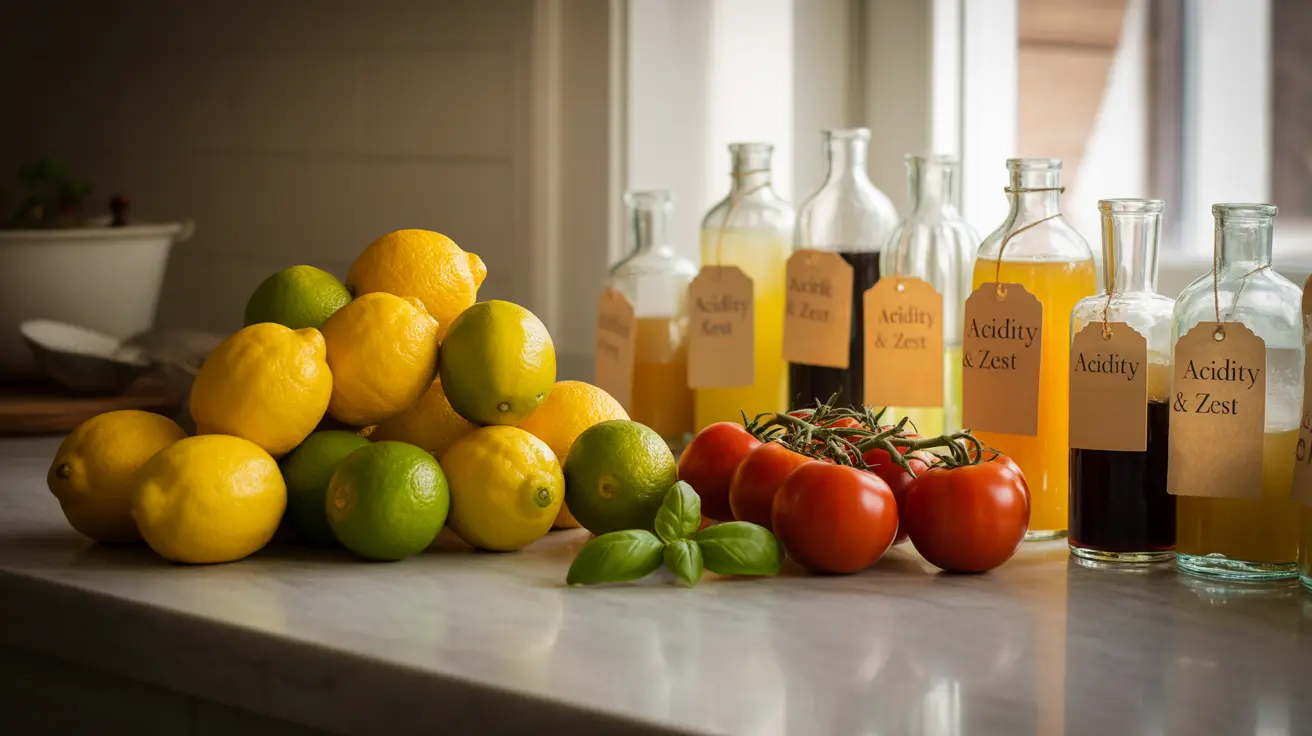When it comes to nutrition and health, acidic foods often spark debate and confusion. While some people worry about their effects on health, others praise certain acidic foods for their nutritional benefits. Understanding the role of acidic foods in your diet is crucial for making informed dietary choices and managing specific health conditions.
This comprehensive guide explores the truth about acidic foods, their impact on your health, and how to make smart decisions about incorporating them into your diet. We'll examine both the potential risks and surprising benefits, helping you navigate this important dietary topic with confidence.
What Are Acidic Foods?
Acidic foods are those that have a low pH level, typically below 7 on the pH scale. Common examples include citrus fruits, tomatoes, vinegar-based dressings, and certain beverages. Understanding which foods are acidic can help you make informed choices about your diet, especially if you have specific health concerns.
Most Common Acidic Foods and Beverages
Several everyday foods and drinks fall into the acidic category:
- Citrus fruits (lemons, limes, oranges, grapefruits)
- Tomatoes and tomato-based products
- Coffee and tea
- Carbonated beverages
- Vinegar and vinegar-based dressings
- Fermented foods
- Alcohol
- Processed foods with added acids
Health Benefits of Certain Acidic Foods
Despite their acidity, many acidic foods offer significant nutritional benefits:
- Citrus fruits: Rich in vitamin C and antioxidants
- Tomatoes: Contain lycopene and other beneficial compounds
- Fermented foods: Provide probiotics for gut health
- Apple cider vinegar: May aid in blood sugar regulation
Managing Acidic Foods in Your Diet
For most people, consuming acidic foods in moderation is perfectly safe. However, certain conditions may require careful consideration of acidic food consumption:
Tips for Smart Consumption
Consider these strategies when including acidic foods in your diet:
- Pair acidic foods with non-acidic foods to buffer their effects
- Eat smaller portions throughout the day rather than large amounts at once
- Use a straw when drinking acidic beverages
- Rinse your mouth with water after consuming acidic foods
- Wait at least 30 minutes before brushing teeth after acidic foods
Frequently Asked Questions
Are acidic foods bad for your health, and should most people avoid them?
No, most acidic foods are not inherently bad for your health, and most people don't need to avoid them completely. Many acidic foods, like citrus fruits and tomatoes, are rich in essential nutrients and offer important health benefits. However, individuals with specific conditions like severe acid reflux might need to limit their intake.
What foods and drinks are the most acidic, and which ones should I limit if I have heartburn or GERD?
The most acidic foods include citrus fruits, tomatoes, coffee, carbonated beverages, and alcohol. If you have heartburn or GERD, consider limiting these items and paying attention to your body's response to them. Working with a healthcare provider can help you develop an appropriate dietary plan.
Can eating too many acidic foods damage your teeth or increase tooth sensitivity?
Yes, frequent consumption of acidic foods can potentially erode tooth enamel and increase sensitivity. However, you can minimize this risk by using proper eating techniques, such as drinking water after acidic foods and waiting to brush your teeth.
Is it true that acidic fruits and vegetables can actually be good for your health, despite their acidity?
Yes, many acidic fruits and vegetables are excellent sources of vitamins, minerals, and antioxidants. Their nutritional benefits often outweigh concerns about their acidity for most people. For example, citrus fruits provide vital vitamin C, while tomatoes offer beneficial lycopene.
How does reducing acidic foods help or not help conditions like acid reflux, IBS, or kidney stones?
Reducing acidic foods can help manage symptoms of acid reflux and GERD by decreasing stomach acid production. However, the relationship between acidic foods and conditions like IBS or kidney stones is more complex and varies by individual. Some people might find relief by limiting acidic foods, while others may not notice significant changes. It's important to work with a healthcare provider to develop an appropriate dietary plan for your specific condition.




